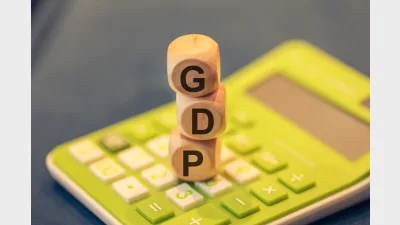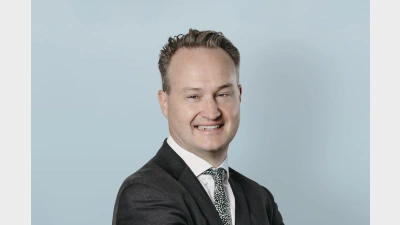CEO defends Future Fund mandate amid calls for revision



The CEO of the Future Fund is against any revision to the fund’s mandate.
Last year, Climate Energy Finance and the Climate Capital Forum proposed enhancing Australia’s sovereign wealth fund mandate. They recommended adding a strategic national interest objective and allocating a $20 million investment to critical minerals, metals, and renewable sectors.
But despite these calls and pressure from some quarters to dismantle the fund for debt reduction or alternative investments in renewable energy and public housing, the Future Fund, under the leadership of outgoing chairman Peter Costello, has dismissed these proposals as “foolhardy schemes”, underscoring the fund’s vital role in the national economy.
“Saving money is the hard part of politics. Spending it is easy. It was a great achievement, against the odds, to tuck away some savings and invest it into a mature, well-run, successful and respected sovereign wealth fund,” Costello said.
“If it is spent, it will never be replaced, Australia will be more exposed, and our financial position will become more precarious.”
The Future Fund Investment Mandate Direction 2017 was issued to the Future Fund board on 15 May 2017. It requires the Future Fund board to adopt a benchmark average return for the fund of “at least the Consumer Price Index (CPI) +4.0 to +5.0 per cent per annum over the long term”. In striving for this benchmark return, the Future Fund board may pursue an acceptable, but not excessive, level of risk.
Addressing the media after the 2023 portfolio update of the fund on 23 January, Raphael Arndt, the CEO, voiced opposition to any alterations to the current mandate.
“It’s really important that the future fund mandate stays pure,” Dr Arndt said.
“I think through almost 18 years now, the investment mandate has been very clear. It is a directive in terms of what we should invest in and it does focus on returns and risk management, and that’s been really helpful as a long-term investor.”
Despite the Future Fund’s detailed mandate, Dr Arndt mentioned that the board considers “investment stewardship” and takes into account various “other issues”.
“We do have a lot of investments in Australia domestically across infrastructure and some technological areas like AI-related investments, data centres, and renewables,” said Dr Arndt.
“We are a large investor in one of the largest wind and solar developers in the country. So, all of that is happening within the Future Fund portfolio, without any need for the government to reduce or to complicate the mandate.”
Dr Arndt pointed to international examples, noting ample evidence supporting the idea that altering a mandate is a delicate task, often introducing additional challenges.
“We’ve seen other funds around the world have their mandates changed for this sort of reason, you then get into trade-offs between what’s more important, returns or investing in this particular area,” Dr Arndt said.
However, recent research indicates that mandates have posed challenges for several international sovereign funds in terms of their engagement, or lack thereof, in sustainable projects.
Director of the Sovereign Investment Lab at Bocconi University in Milan, Bernardo Bortolotti, said last year: “I’m not seeing wide-ranging investment strategy against climate change in funds around the world.
“With the notable exception of Singapore and New Zealand, the commitments so far have been lacklustre, accounting for less than 5 per cent of total sustainable investments.”
Globally, there are approximately 100 sovereign wealth funds and the UN is turning to them to contribute to the required US$125 trillion by 2050 for achieving net-zero greenhouse emissions. In the aftermath of the latest COP28 meeting in Dubai, the International Forum of Sovereign Wealth Funds (IFSWF), of which the Future Fund is a member, emphasised in a statement that sovereign wealth funds play a crucial role in financing the energy transition, particularly in emerging markets where there is a substantial demand for long-term capital.
“Sovereign wealth funds mandated to develop their home economies have a unique role as partners of choice for private investors to ensure that all their citizens benefit from the energy transition,” said the IFSWF.
“However, many large sovereign wealth funds that invest in financial markets for long-term return will be firmly in the camp of private-sector investors looking for a profit by investing in transition technologies, companies and projects. They will need to assess all the available investment opportunities through the lens of the energy transition and, consequently, reassess the perceived risks of some emerging markets.”
The IFSWF added that the role of sovereign wealth funds extends beyond merely financing major renewable energy projects in developed markets, their traditional focus. The emphasis now is on leveraging their unique attributes as long-term investors and willingly embracing risks associated with new technologies, projects, and markets for the collective benefit of humanity.
For Dr Arndt, however, the Future Fund can tap into causes of benefit without altering its mandate.
He told the media on Tuesday that “if the government was so inclined to give us a mandate to look at any particular area with a separate pool of money, we could do that”.
“But I would caution against changing the Future Fund or any of the other long-term investment fund mandates,” Dr Arndt said.
The Future Fund reported this week that it has surpassed its annual return target to reach a record value of $211.9 billion.
Recommended for you
Economic growth was weaker than expected, once again highlighting an economy largely sustained by population growth and government spending.
In this latest edition, Anna Shelley, CIO at AMP, shares the fund’s approach to current market conditions and where it continues to uncover key opportunities.
The mega fund has announced a $2.2 billion investment in a leading data centre platform, bringing its global real assets portfolio to nearly $60 billion.
In this latest edition, Australian Retirement Trust’s head of global real assets Michael Weaver explains the fund’s approach to finding new opportunities as it surpasses $300 billion in funds under management.












